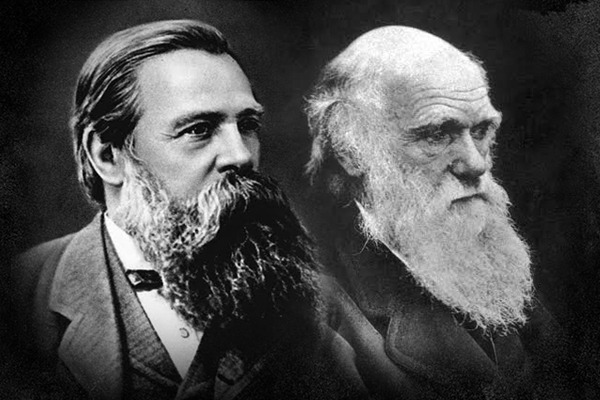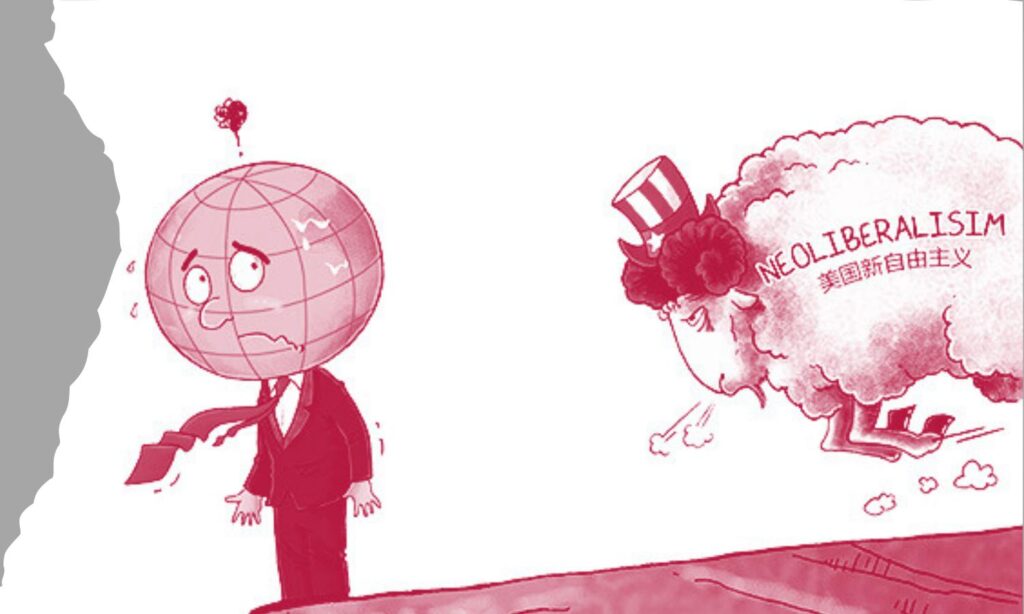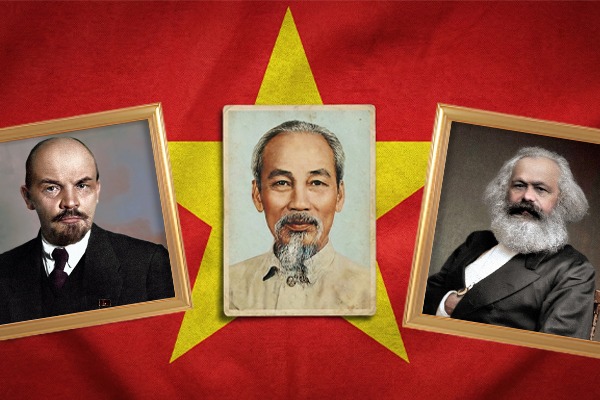An article ‘The Part Played by Labour in the Transition from Ape to Man’ written by Engels in June of 1876, “…was written as an introduction to his larger work ‘The Three Basic Forms of Slavery’. He later changed the title of this work to ‘The Enslavement of the Workers: Introduction’. This was the reason that this brief work touches so many topics; the laws governing the biological and social emergence of mankind, the interaction of society and nature, the possible social consequences of productive activity, the development of the private property, the transitory nature of capitalism, the numerous others” (Andreyev).
But this work could not get completed and he included this article in ‘Dialectics of Nature’ by entitling it ‘The Part Played by Labour in the Transition from Ape to Man’, so it is now a part of the mentioned work. Dialectics of Nature was written in 1883 and got published in 1927; in USSR posthumously (d. 1895). This article also remained unpublished during the lifetime of Engels; it was the journal of German social-democrats in which this article was published in 1896 for the first time.
This great work of Engels is a firm means to understand the materialist outlook, i.e., Dialectical and Historical Materialism; the outlook of Marxism in its true sense. This work firmly explains the transformation of man from ape by discussing the part played by labour in this developmental process. Three transformations in apes, i.e., the erect movement in walking, the evolution of the hand, and the evolution of the brain, were instrumental in its transformation into humans.
The origin of labour, the construction of tools, hunting strategies, and the use of fire were the stages of this evolution as well as the instruments for further development. The origin of language took place as a need of human society, for which the appropriate structure of the human body, which was the outcome of the evolution, played a conducive role. This chapter of human evolution is discussed in the above-mentioned work briefly. The material developed in this work can be traced tremendously in another great work of Engels; ‘Family, Private Property and the Origin of the State’.
In the introduction of “The Part Played by Labour in the Transition from Ape to Man”; Engels writes: “Labour is the source of all wealth, the political economists assert”. But He, in addition to this opinion of political economists, writes –
“And it really is the source – next to nature, which supplies it with the material that it converts into wealth. But it is even infinitely more than this. It is the prime basic condition for all human existence, and this to such an extent that, in a sense, we have to say that labour created man himself”.
He suggested the answer to the biggest question of history by this sole statement, i.e., ‘the question of the origin of humans.’ This pamphlet answers that humans are neither the creation of any almighty nor an alien species that evolved differently from the other species on Earth (as it is unscientifically propagated in the name of science, that the humans came or were sent from some alien planets and the other unscientific doctrines of the same kind are also being propagated). Rather, man also evolved through the law of change and development – as all living beings and matter are bound to change – from a type of monkeys, called the apes. It is the labour of human hands that created and evolved man superiorly in comparison to the rest of the living-world.
Engels presented a strong basis for the fact that living organisms follow the ‘Law of Co-relational Growth’ and the species which evolved as humans developed an erect posture to walk, freeing their hands from this function by following this law. He referred to Charles Darwin’s Origin of Species, “This law states that the specialised forms of separate parts of an organic being are always bound up with certain forms of other parts that apparently have no connection with them” (Engels). He also presented an example from Darwin’s work related to this law. It was because of the ‘Law of Co-relational Growth’ that the development of the brain started, which was triggered by the free hands of the ape and the origin of labour that transformed the ape into man. Engels writes –
“First, owing to their way of living which meant that the hands had different functions than the feet when climbing, these apes began to lose the habit of using their hands to walk and adopted a more and more erect posture. This was the decisive step in the transition from ape to man”.

According to Engels, the probable period of that ape which transformed into man was the tertiary period and it was “many hundreds of thousands of years ago,” and their living place was “a great continent that has now sunk to the bottom of the Indian Ocean.” As the initial stream toward the transformation into man had been crossed by our ancestors with the change in diet and the change in the structure and the use of hands as well as feet. But the actual transformation took place with the origin of labour. Before this, they used tools to gather food, to make roofs, and for their defence from predatory animals, but this was not labour in the exact sense of the word. About the origin of labour, Engels writes –
“Food became more and more varied, as did also the substances entering the body with it, substances that were the chemical premises for the transition to man. But all that was not yet labour in the proper sense of the word. Labour begins with the making of tools” (ibid.).
Early humans, who lived as herds, experienced the profound effect of the development of hands. By the origin of labour, humans found a way to dominate nature. Humans kept discovering new qualities of natural things and at the same time, the increased joint activity due to the development of the hand caused social relations to become more firm. The need to talk within these firm social relations further originated speech.
Karl Marx writes about the origin of language in The German Ideology –
“Language is as old as consciousness; language is practical consciousness that exists also for other men, and for that reason alone it really exists for me personally as well; language, like consciousness, only arises from the need, the necessity, of intercourse with other men”.
Consciousness is a human characteristic. To understand language and consciousness, it is essential to keep the following statement of Jagrup Singh in mind:
“Consciousness is the highest stage of material motion (of the dual-fold effect of matter ‘adaptation’ and ‘reflection’). It is a phenomenon of appearance from the spiritual and again spiritual from appearance. It is a complex phenomenon of the transformation of the abstract [to] concrete and then concrete to the abstract. There is an activity of mind during abstract phenomena and human, social activity during concrete phenomena.” (‘Revolutionary Philosophy’ Trans. Varinder Khurana).
It means consciousness is the characteristic that arises in man because of the social system and it is the higher stage of the characteristics of adaptation and reflection. This characteristic of adaptation and reflection appears as the characteristic of ‘spirit’ and ‘soul’ in living matter, but in man, this characteristic achieves a higher form of ‘Mind’ and ‘consciousness’. This consciousness becomes ‘language’ in humans. Let us see another reference to illustrate this concept more:
“Consciousness is the gesture to hold the group together; the voice and the language serve as gestures to attract attention, contributing to the achievement of human collective activity. It is a complex process of the accumulation of concrete experiences of practice into abstract concepts and of reproducing them. It is enriched during the social practice of human development.” (ibid.).
The whole of this process now can be understood based on Engels’ pamphlet. Because of the specific way of living of the ancestral man, there must have been a gradual but significant different development in the structure of their hand compared to the feet, and this difference was proven conducive for the erect walking posture of man. When they started to walk erectly, they used their hands to gather food, which was further instrumental for the use of tools and ultimately for the making of tools, which is known as the origin of labour. Here, the importance of diet arises, and the tendency of migration in animals in the search of new food areas after digesting all the reachable vegetation in one place; ‘Predatory Economy’, as it is mentioned in this pamphlet, is an important feature. Different diets from different places enriched with different (and new) chemical features enhanced new qualities in body structure. These were the characteristics that differentiated man from the rest of the living world.
Our ancestors, while living in herds, must have been using similar means of communication as other animals. But the speech produced by the human voice box is a human characteristic. That undoubtedly is the biggest contribution added by labor in the evolution of man. Speech arises from human social necessity. They had acquired the ability to domesticate animals for the fulfilment of diet; they got meat and milk from their cattle. The harnessing of fire, fire-cooked meat, “shortened the digestive process, as it provided the mouth with food already, as it were, half-digested” (Engels, ibid). The domestication of animals made meat more copious by opening up a new, more regular source of supply in addition to hunting, and moreover provided, in milk and its products, a new article of food at least as valuable as meat in its composition (see ibid). These proved to be strong steps in human evolution, which evolved the body, brain, and speech. All these objective circumstances were decisive for the origin of language.
Engels further discussed in this pamphlet how the idealist outlook originated in human history. He writes –
“By the combined functioning of hand, speech organs and brain, not only in each individual but also in society, men became capable of executing more and more complicated operations, and were able to set themselves, and achieve, higher and higher aims. The work of each generation itself became different, more perfect and more diversified. Agriculture was added to hunting and cattle raising; then came spinning, weaving, metalworking, pottery and navigation. Along with trade and industry, art and science finally appeared. Tribes developed into nations and states. Law and politics arose, and with them that fantastic reflection of human things in the human mind – religion. In the face of all these images, which appeared in the first place to be products of the mind and seemed to dominate human societies, the more modest productions of the working hand retreated into the background, the more so since the mind that planned the labor was able, at a very early stage in the development of society (for example, already in the primitive family), to have the labor that had been planned carried out by other hands than its own. All merit for the swift advance of civilization was ascribed to the mind, to the development and activity of the brain. Men became accustomed to explaining their actions as arising out of thought instead of their needs (which in any case are reflected and perceived in the mind); and so in the course of time there emerged that idealistic world outlook which, especially since the fall of the world of antiquity, has dominated men’s minds. It still rules them to such a degree that even the most materialistic natural scientists of the Darwinian school are still unable to form any clear idea of the origin of man, because under this ideological influence they do not [recognize] the part that has been played therein by labour”.
Thus, we see that Engels, in a nutshell, attributes human labour as the cause for the origin of science, law, state, and religion, and the idealist outlook as well. Due to the lack of understanding of the contribution of human labour in their evolution, many people are unable to understand the exact reasons for the origin of man and language, and this is why idealist conceptions are being made and distort the whole interpretation. Thus, the distorted conception led humans to the distorted interpretation, for instance, as the Idealist interpretation did.
The significance of any work always lies in the overall study of its subject and in bringing all the scientific conclusions to light. This great work undoubtedly puts forward that this article proves to be an important instrument for the reader to consolidate their understanding of Historical Materialism, i.e., the outlook of Marxism for society. This is a great contribution by Engels to Marxism, which dismantled the unscientific assertions on the origin of human and their activities including their language. Engels considered speech as the product of labour instead of any almighty’s creation or sudden rewiring, etc. Labour first and then speech; these were the two most essential stimuli under the influence of which the brain of the ape gradually changed into that of man, which is larger and more perfect than before. Human practice through senses, especially with the perfection in the hand, developed the brain more perfectly. The gradual development of speech is inevitably accompanied by a corresponding refinement of the organ of hearing. So the development of the brain as a whole is accompanied by a refinement of all the senses. Thus, there is no room for any other conception for the origin of humans and language except to consider it as the product of labour.
So we need to ally the findings of natural sciences with the fundamentals of philosophy; otherwise, we will not be able to get the correct results. Because without the correct philosophical conceptions, it is impossible to assert the truth. As Lenin wrote: “Unless, therefore, the problems raised by the recent revolution in natural science are followed, and unless natural scientists are enlisted in the work of a philosophical journal, militant materialism can be neither militant nor materialism” (Lenin, “Militant Materialism”).








